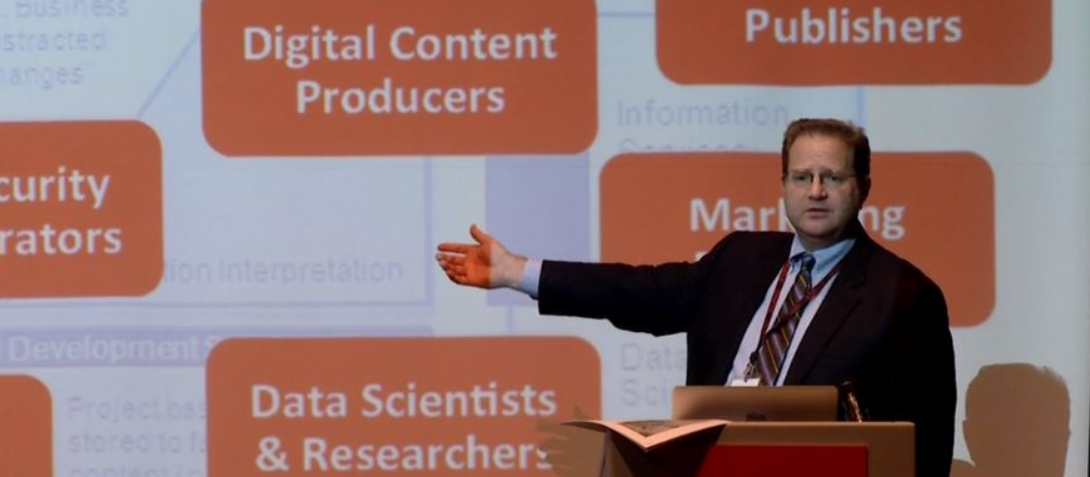Had a conundrum the past few days with Twitter - among several IDs, one was being populated with a mix of "business" and "community" news. With twitter, there's no clear way of categorizing tweets or conversations by tags or categories; the conversations are aggregated but reflect not necessarily a single topic, but either (1) a non-purpose-driven dialogue, either instance-based or continuing, or (2) or purpose-driven dialogue, where the communicators intend to resolve a question, promote something or provide alerts/updates.
In traditional knowledge management terms, communities typically exist as (a) communities of interest (COIs), (b) communities of practice (COPs), or communities of purpose (COPRs). Since the ultimate outcome of these sorts of communities was to add to and share elements of a knowledgebase, the concept of "communicating for communications or simply socializing's sake" isn't really included in these three community-type definitions.
Twitter is, however, mostly just that - a medium for socializing, and not necessarily with the intent of ultimately contributing managed, categorized information to a defined knowledgebase.
So, my conundrum was how to apply knowledge management-style discipline under a particular Twitter ID, i.e., focus the dialogue under the ID on "generating and sharing knowledge about a particular subject" vs. "communicating simply to chat, socialize or otherwise build relationships about multiple subjects".
The approach, constrained by Twitter's lack of subject-based categorization, was to have one Twitter ID focused on the "general communication", and another focused on a subordinate group of those communicating on a particular topic, for information-sharing purposes. The topic-centric Twitter ID and resultant dialogue could be termed a Twitter "COI", with particular subordinate dialogues devolving to "COPs" or even "COPRs". The "general communication" Twitter ID and dialogue I'll term a "Community of Communication" (or "COC"; when the interests of the dialogue sway towards simple alerting/updating) and a "Community of Socialization" (or "COS"; when the interests of the dialogue are simply to get to know one another better, as people).
The probable proliferation of twitter IDs to follow, and the need to manage the production, attribution, categorization and storage of information that surfaces in these online dialogues - that's Twitter Information Management, and it's a whole new bunch of activities I hadn't planned on needing to deal with, but must.
In traditional knowledge management terms, communities typically exist as (a) communities of interest (COIs), (b) communities of practice (COPs), or communities of purpose (COPRs). Since the ultimate outcome of these sorts of communities was to add to and share elements of a knowledgebase, the concept of "communicating for communications or simply socializing's sake" isn't really included in these three community-type definitions.
Twitter is, however, mostly just that - a medium for socializing, and not necessarily with the intent of ultimately contributing managed, categorized information to a defined knowledgebase.
So, my conundrum was how to apply knowledge management-style discipline under a particular Twitter ID, i.e., focus the dialogue under the ID on "generating and sharing knowledge about a particular subject" vs. "communicating simply to chat, socialize or otherwise build relationships about multiple subjects".
The approach, constrained by Twitter's lack of subject-based categorization, was to have one Twitter ID focused on the "general communication", and another focused on a subordinate group of those communicating on a particular topic, for information-sharing purposes. The topic-centric Twitter ID and resultant dialogue could be termed a Twitter "COI", with particular subordinate dialogues devolving to "COPs" or even "COPRs". The "general communication" Twitter ID and dialogue I'll term a "Community of Communication" (or "COC"; when the interests of the dialogue sway towards simple alerting/updating) and a "Community of Socialization" (or "COS"; when the interests of the dialogue are simply to get to know one another better, as people).
The probable proliferation of twitter IDs to follow, and the need to manage the production, attribution, categorization and storage of information that surfaces in these online dialogues - that's Twitter Information Management, and it's a whole new bunch of activities I hadn't planned on needing to deal with, but must.

Comments